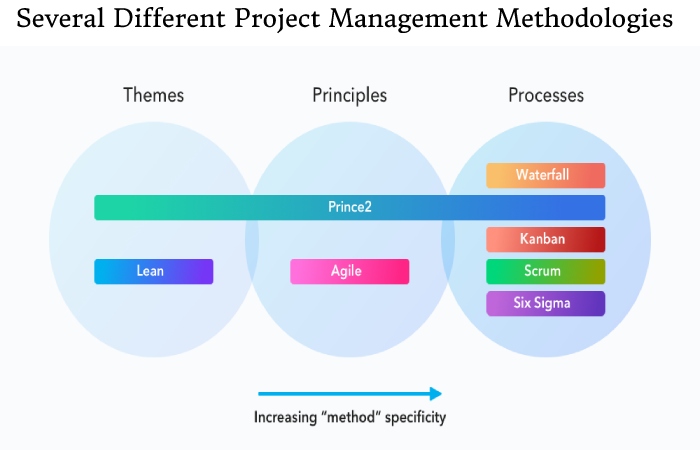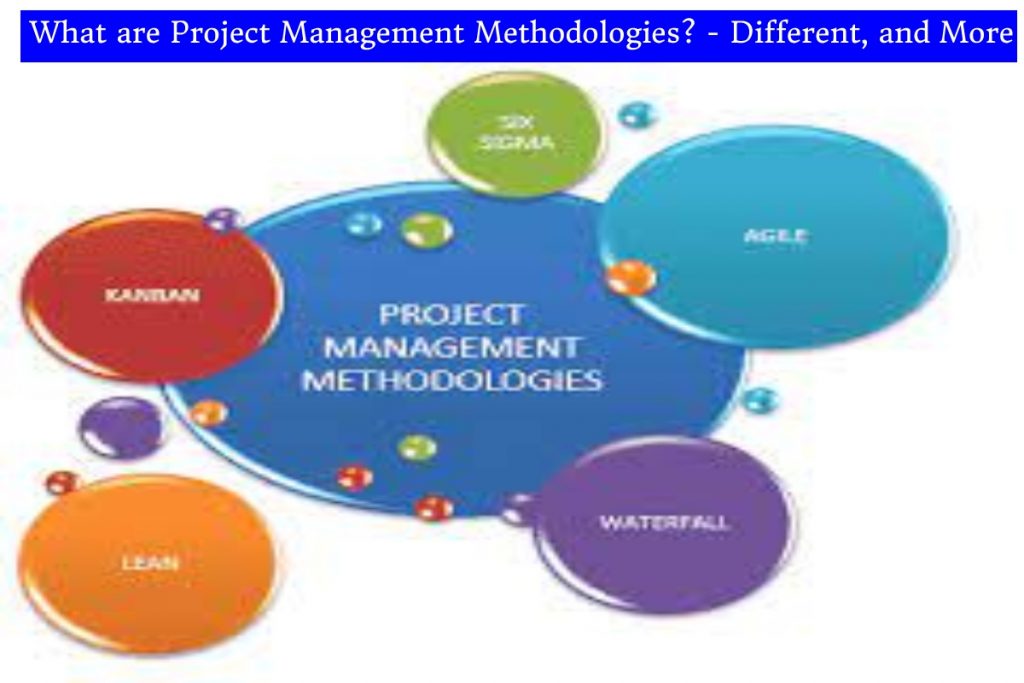What are Project Management Methodologies?
A project management methodologies are usual principles and practices that lead you to establish your projects to guarantee their optimal performance. It is a framework that helps you manage your project in the best possible way.
Project management is critical to organizations and teams. Still, to be truly effective, you need to ensure that you correctly align your project management methodologies with the type of team, project, method, and purposes.
Why are there so Several Different Project Management Methodologies?

No two projects are the same (even if you use helpful features like project templates to replicate your past achievements).
And when you consider the different goals, KPIs, and production methods of different types of teams and other industries, it makes sense that there is no one-size-fits-all strategy to managing a project.
What works great for one type of company can be a nightmare for another.
For example, many software developers have found that traditional project management methods tend to hamper rather than support their workflows and negatively impact their performance and results.
As a result, software teams developed new project management methodologies tailored to their specific concerns.
Before extended, other teams and industries began to adapt these new project management methods to their individual needs and concerns. And so on, with different project management methods reused and tailored for various industries and tailored to specific use cases.
How do you Choose the Proper Project Management Methodologies?
Many factors will affect the appropriate project management methodology for your project, team, and organization. Here’s a quick breakdown of some of the critical considerations that can help you make up your mind:
Cost and Budget
On a range of $ to $$$, what budget are you working with? Can that change if necessary, or does it have to stay within these given limits?
Team size
How many people participate? How many stakeholders? Is your team relatively small and self-organizing or quite large, and do you need stricter delegation?
Risk-taking
Is this a vast, high-impact project that needs the care to get serious results? Or is it a minor project with a little more headroom?
Flexibility
Can you change the scope of the project in the process? What about the finished product?
Timeline
How much time is available to submit the report? Do you need a quick response, or is it more critical that you have a good result no matter how long it takes?
Client/stakeholder cooperation
How much or does the customer/stakeholder have to participate in the process? How involved do they need – or want – to be?
The List of Project Management Methodologies
We’ve compiled this list of project management methodologies to help you get used to the basics.
While not entirely complete, our goal is to give you an overview of some of the different methods so that you can see what’s out there and find out which one is best for your particular projects.
Cascade Methodologies
A cascade method is a traditional approach in project management. In it, tasks and phases are linearly and sequentially, and each step of the project is ready before the next begins.
The phases of cascading project management generally follow this order:
- Requirement
- Analysis
- Design
- Building
- And also, Tests
Agile Methodology
The agile project management methodologies grew out of growing dissatisfaction with the linear approach of traditional project management methodologies. The focus shifted to more iterative models that allowed teams to review their projects as needed during the process, rather than wait until the end to review and change.
The agile project management concept has generated several specific subplots and methods such as Scrum, Kanban, and Lean. But something do they all have in well-known? The most important principles of agile project management methods are:
- It is collaborative.
- It’s fast.
- You are open to data-driven change.
Scrum Methodology
A scrum is an agile form of project management. You can think of it as a framework rather than a project management methodology per see. With Scrum, work is into short cycles, called sprints, typically lasting between 1 and 2 weeks.


